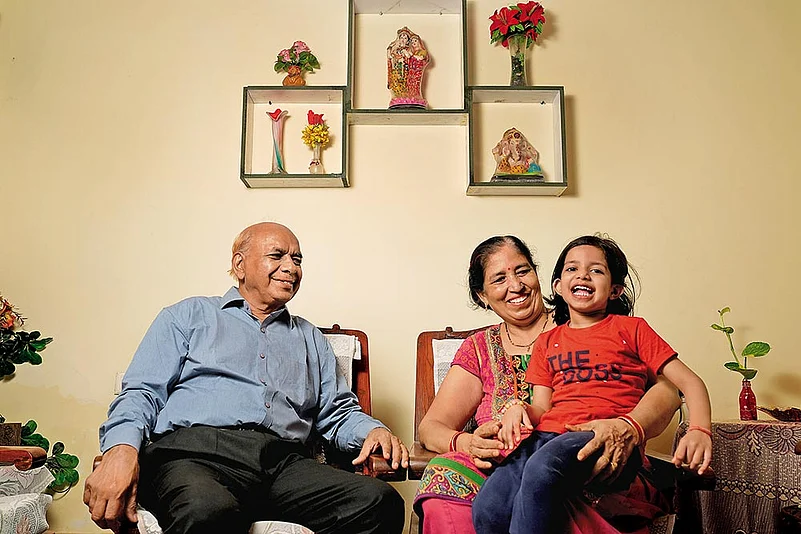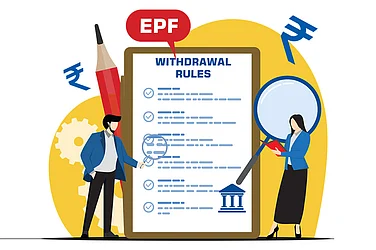Pramod Agrawal, 64, a former banker, is an inspiration for active retirees who do not know what to do with their idle time post retirement. Pramod, who lives with his spouse in Ghaziabad, had the option of staying at home, like most retirees, but chose to use his expertise in new ways. Now, he is a visiting faculty at several institutes.
One of his inspirations to keep himself busy was his wife, Manjula, 58, who is a senior lecturer at VMLG college, Ghaziabad, and will retire after two years. He wants to be in the workforce at least until then, but is open to continue being productively busy if he keeps getting assignments. The banking ethos has had a deep impact on his life, which has been shaped by a preference for calculated decisions, conservative investment choices and aversion to uncertainty, which reflects in both his life choices and financial decisions.
Life After Retirement
Over the years, his public dealing skills rewarded him with lasting connections and friends. That zest for life has continued in his retirement too, and perhaps, it was those connections that helped him find a purpose later in life.
Soon after retirement, he started putting his skills—public dealing, financial acumen and loads of patience—acquired over a 39-year banking stint to good use. He became a visiting faculty in institutions, such as the Institute of Management Technology (IMT), Ghaziabad; Central Detective Training Institute (CDTI); Central Bureau of Investigation (CBI) academy; National Institute of Banking Studies and Corporate Management, among others, where he teaches basics of banking and personal finance to impart practical aspects of finance.
He says, “In 1992, I did part-time diploma, PGDBM from IMT, Ghaziabad. The director was an account holder in my bank. He was very impressed with me. Sometimes he would offer some teaching sessions to me. That’s how I started teaching in management institutes.
What helped him cultivate friends through his career was his indefatigable attitude to help others. That reflects in his current endeavour as well, where he educates people about evolving technology, its usability and risks, financial processes and concepts, how to steer clear of frauds, how to handle digital transactions, and the careful use of artificial intelligence, among others.
The teacher in him never tires: he takes out time for his friends to explain terms, such as digital arrest, different types of frauds, APK files, ensuring they are aware and better protected against potential incidents. He says, “Awareness level is low around cybercrime and frauds, particularly among older people. I teach my students and inform my retired friends about different types of digital frauds and what the Reserve Bank of India (RBI) says, and the ways to safeguard themselves.”
On why he chose teaching instead of starting something of his own, he says, “This is my passion... to guide people. I have realised that people need practical knowledge on these subjects. I have a long experience of working in different departments of banks, so I thought of sharing my knowledge with others.”
In Safe Mode
As a typical banker, he followed the philosophy of risk aversion throughout his financial journey. Risk averse in nature and a stickler for reliability in investments, he always preferred to invest in conservative investments that carry little to no risk. “I always wanted to be in safe mode,” says Pramod.
After the birth of his daughter in 1988, he started saving in flexi recurring deposits in her name, and followed the same strategy of saving small for his two other children
But what he lost in sticking to conservative investments in terms of returns, as some would say, he regained to a large extent by being consistent and disciplined about his financial savings and plan. The two qualities are the bedrock of a sound and successful financial plan.
What also helped was the fact that he gets regular pension from Punjab National Bank after retirement. So, with one goal partly taken care of, he concentrated on the others, such as his children’s future.
After the birth of his daughter in 1988, he started saving in flexi recurring deposits (RD) in his bank in her name. It seemed a safe and attractive investment to him because he received 1 per cent additional interest on the RD, being a bank employee. Whenever he had a surplus, he would deposit it in the flexi RD. He followed the same strategy to save small, but consistently in safe instruments for his second daughter and son.
For him, it was not about experimenting with “fancy instruments”, but ensuring that his family’s needs were met without compromise. Now they are all financially stable. He faced one hiccup though. One of his real estate investments got entangled in disputes. “I did my due diligence. At that time, the builder seemed reliable. Later, it turned out to be a fraud, but I learned the lesson.” Pramod believes mistakes are lessons for the future.
The Other Wealth
Pramod and his wife are particular about their health. That learning came when he suffered a minor heart attack in 2012. Initially, he took it lightly, but eventually he understood the importance of maintaining an active lifestyle. He says: “Since then, my wife and I have been following a daily routine of doing 1 hour of yoga or a walk in the park. Health and financial stability are interlinked and both require patience and consistency.”
Since he has enough savings and the guarantee of a lifetime pension, he donates 10 per cent of the pension for the education and skill development of needy children. “Money is important. It is needed for our day-to-day requirements, but it is not everything in life,” he says.
Success need not always be dramatic. Discipline, simplicity and consistency can help carve a life of contentment and dignity, which Pramod is so proud of now. “I am a satisfied person in life,” he says.
versha@outlookindia.com














